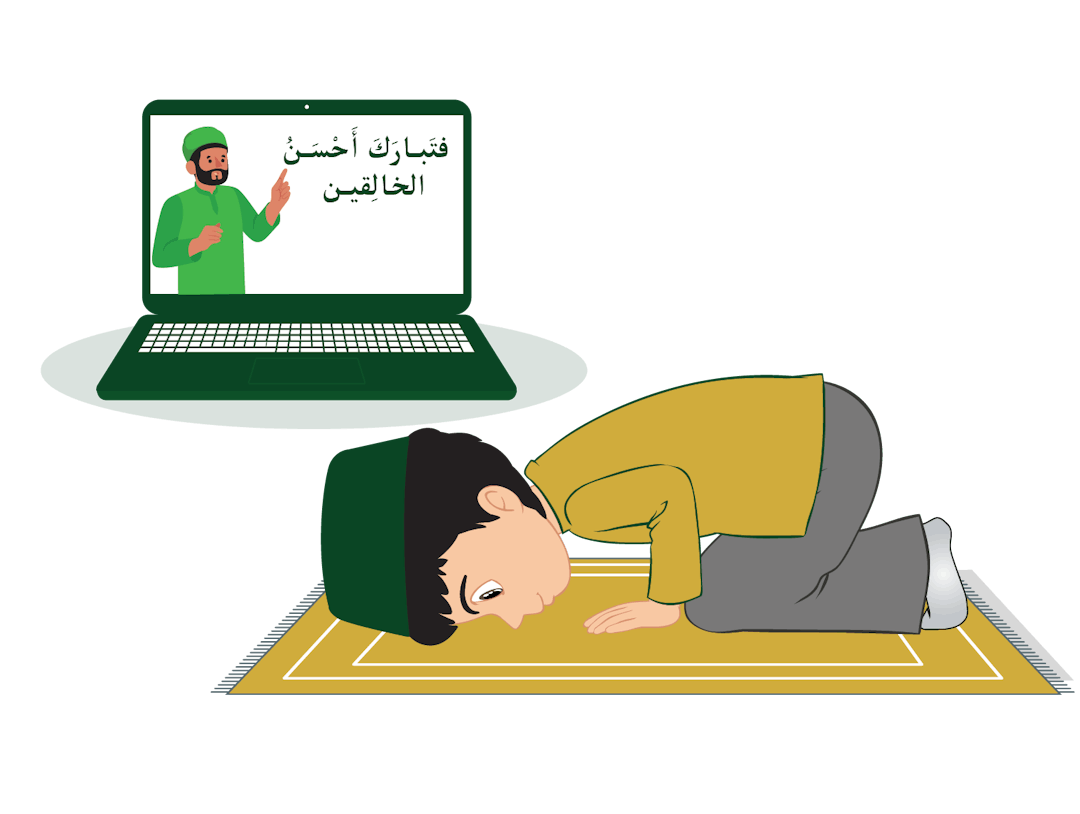
You may have come across the word Sajdah while reading the Quran. There are certain Ayaat in the Quran with the word Sajdah that call upon readers to prostrate. The question of how many Sajda in Quran has been much debated by Muslim scholars. You should not be confused between Surah Sajdah and Sajdah in Quran. This blog sheds light on the Sujood in Quran, their numbers, location, and benefits.
Meaning of Sajdah
The Arabic word Sajdah (سجدة) means “to prostrate” or “to submit”. In Islamic theology, Sajdah is an act of prostrating or bowing during regular prayer. Sajdah is performed by meekly placing the forehead on the ground (to worship Allah). It is obligatory to place the palms of hands, knees, and toes of the foot on the ground during Sajdah.
What is Sajda e Tilawat
Sajda e Tilawat also known as the Quranic Sajdah is an act of prostrating when the recitor or listener reaches one of the Ayat e Sajda (verses of prostration). Sajda Tilawat is considered a Wajib by Muslim jurists.
Ayat e Sajda In Quran
Ayat e Sajda are the verses when read prostration becomes wajib. There are fourteen Ayat e Sajda in Quran that appear in different Parah (Juzz). The 1st Sajda in Quran appears in Ayah 206 of Surah Al-A’raf in Para 9.
Symbol of Sajdah In Quran
The verses of Sajdah in Quran are represented by a specific symbol. The symbol ( ۩ ) is used to indicate the verses of Sajdah in most of the Msahaf. The word that calls upon prostration is always overlined.
How Many Sajda in Quran 14 or 15
The question of the number of sajda in the Holy Quran has been much debated in Muslim circles. The majority of Muslim interpreters agree that there are 14 sajdah but others claim differently. Let’s explore how many Sajda in Quran 14 or 15
According to the Hanafi school of thought, there are 14 verses of prostration in the Quran. it is necessary (wajib) to prostrate for fourteen prostrations in the Quran. The second listed prostration in Surah Hajj verse 77 is not considered Ayat Sajdah.
Muslim religious scholars and Ulama agreed upon fourteen (14) Sajda in Quran (places of prostration ). At the same time, Imam Shafi R.H suggests prostration at Surah Hajj verse 77 (22:77), which makes 15 Ayat e Sajda in Quran.
While the Maliki school of thought considers it eleven.
List of Sajdah In Quran Para Wise
It is agreed upon fact that there are 14 sajdah in the Quran. Now let’s look at the list of Sajdah in Quran para wise.
Muslim religious scholars and Ulama agreed upon all fourteen (14) Sajda in Quran (places of prostration ). At the same time, Imam Shafi R.H suggests prostration at Surah Hajj verse 77 (22:77), which makes 15 Ayat e Sajda in Quran.
How To Offer Sajdah Tilawat
All conditions of Sajdah of regular prayer are applied for Sajda Tilawat such as Niah (intention), purity, etc.
- Stand facing the Qiblah
- Make intention (niah) for Sajda-e-Tilawat
- Go into Sajdah (prostration) saying Allahu-Akbar without raising your hands.
- Read Subhaana Rabbiyal A’ala( سُبْحَانَ رَبِّيَ الأَعْلَى) three times in Sajdah.
- Rise from Sajdah saying Allahu Akber الله أكبر
- Sit in the Tashahhud position and say salam. Now one Sajdah is complete.
- You can repeat the process until 14 sajah are completed.
Dua Sajda Tilawat
There is an authentic dua Sajda Tilawat, that can be read while prostrating.
سَجَدَ وَجْهِيْ لِلَّذِيْ خَلَقَه وَشَقَّ سَمْعَه وَبَصَرَه، تَبَارَكَ اللّٰهُ أَحْسَنُ الْخَالِقِيْنَ
“I have prostrated my face to the One Who created it and gave it hearing and sight by His might and His power. Glory is to Allah, the Best of creators”
Hadith About Sajda Tilawat
Many Hadiths provide evidence of the authenticity of Sajda Tilawat.
In a Hadith Sahih Muslim 81, Hazrat Abu Huraira (R.A) reports that the Messenger of Allah,(SAW) said;
“When the son of Adam recites a verse of prostration and he prostrates, Satan withdraws and he weeps and he says: Woe to me! The son of Adam was commanded to prostrate and he prostrated, so he will go to Paradise. I was commanded to prostrate and I refused, so I will go to Hellfire.”
Another Hadith (Sahih al-Bukhari 1079) is narrated by Ibn Umer (R.A), He says;
Whenever the Prophet (SAW) recited the Sura which contained the prostration of recitation he used to prostrate and then, we, too, would prostrate and some of us did not find a place for prostration.
Benefits of Sajda In Quran

Study Islam With Islamic Courses of eQuranekareem
The online Islamic Studies Courses of eQuranekareem help you to study Islam deeply. You can understand every aspect of Islam with professional online Islamic Scholars.



